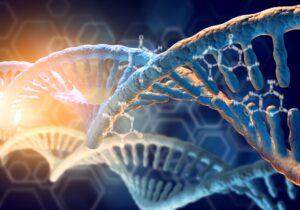by Vanita Dahia
The biological approach to mental health illnesses is primarily rooted in factors such as genetics, neurochemistry, and brain structure. The complex interplay between biological processes and mental health conditions have led to researchers investigating the impact of nutrients and physiological changes in mental health.
Mental health, often perceived as a psychological phenomenon, is deeply rooted in our biology. Conditions like stress, anxiety, and depression are not simply states of mind but reflect intricate imbalances within our bodies.
The Foundation of Mental Health: Neurotransmitters
Our brains are intricate networks of neurons that communicate with each other through chemical messengers known as neurotransmitters. We are born with a full complement of brain chemicals to fire up the master organ of the body. We need both excitatory to get us up and going or feel excited about life and inhibitory neurotransmitters to keep us calm and relaxed. When these neurotransmitters are out of balance, they can manifest as moods, anxiety, behavioural changes or poor cognition.
The DSM-5, an accredited diagnostic and statistical manual for mental health disorders contains 20 disorder chapters and nearly 300 mental illnesses.
Drivers of Mental Illnesses
Several factors can contribute to imbalances in neurotransmitters and, consequently, mental illnesses. These include:
- Genetics: Family history can play a significant role in determining susceptibility to certain mental health conditions.
- Gut microbiome: The gut microbiome, often referred to as our second brain, plays a crucial role in mental health. Emerging research suggests that imbalances in gut bacteria can influence brain function and contribute to mood disorders.
- Nutrient deficiencies: Deficiencies in essential nutrients, such as vitamins and minerals, can impact neurotransmitter production and brain health.
- Stress: Chronic stress can disrupt the body’s stress response system, leading to changes in neurotransmitter levels and increased risk of mental health problems.
- Toxicity: Exposure to pollutants, heavy metals, and other toxins can damage brain cells and interfere with neurotransmitter function. Common heavy metals linked to mental illnesses are Lead, mercury and cadmium
- Depletion of amino acids: Amino acids are building blocks of proteins and neurotransmitters. Depletion of certain amino acids can contribute to mental health issues.
- Hormonal imbalance: Hormonal fluctuations, particularly during puberty, pregnancy, and menopause, can affect mood and increase the risk of mental health disorders.
Managing Mental Illnesses
The biological approach to mental health often involves a combination of treatments aimed at addressing underlying biological factors. These may include:
- Psychiatry: Psychiatrists prescribe medications that can help to regulate neurotransmitter levels and alleviate symptoms of mental health disorders.
- Psychotherapy and counselling: These therapies can help individuals develop coping skills, manage stress, and address emotional issues related to mental health conditions.
- Correcting functional imbalance: Functional medicine practitioners may recommend dietary changes, supplements, and other interventions to address underlying imbalances in the body and support mental health.
The biological approach has made significant strides in understanding and treating mental health conditions with a full understanding of the body’s chemistry.
Complex interplay of drivers for Mental Illnesses
Serotonin, dopamine, and noradrenaline play pivotal roles in mood regulation. When these neurotransmitters are out of balance, it can manifest as mood disorders.
Women often experience mood changes linked to hormonal fluctuations. Progesterone depletion particularly during menopause will deplete GABA levels in the brain which impact moods and manifests as anxiety, distress or depression.
Gut bacteria play a crucial role in producing neurotransmitters like serotonin, often dubbed the “happiness hormone.” A healthy microbiome can support optimal serotonin levels, contributing to positive mood and emotional regulation.
Everyone’s journey to mental wellbeing is unique. What works for one person may not work for another.
Understanding the biological underpinnings of mental health is crucial for developing effective treatment strategies. By identifying the root causes of imbalances in neurotransmitters, gut microbiome, minerals, and amino acids, we can tailor interventions to address these underlying factors.
Educational Webinar
The Biology Behind Mental Health: Understanding the Brain
In this webinar, you will learn:
➡ Understand the role of key neurotransmitters in mood regulation and imbalance
➡ Connect the dots of the microbiome, inflammation, amino acid status with mental health
➡ Learn about the importance of zinc, copper, gut, immune function and histamine in brain function
➡ Understand the impact of genetics and amino acids on mental health
➡ How to identify underlying drivers of mental health conditions
Test for Mental Health – Stress, Anxiety, Depression, Mood
Functional pathology tests can identify underlying causes of mental health imbalances that may not be identifiable with conventional lab tests.




